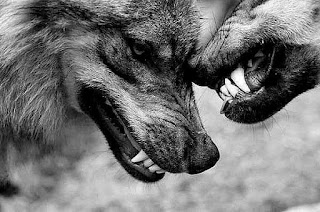I started this blog in 2007 in conjunction with my first NaNoWriMo. I loved that experience of daily writing and wanted to continue developing better writing habits, but knew I wasn’t likely to do so without some kind of audience, some kind of observer effect. So I began to blog. I wrote in a blog hoping others might read what I was writing, so I would write more. I had no idea how important that decision would be. I thought I was just writing.
At first, this blog was an ongoing series of ruminations about the world, but I quickly began to write more specifically about storytelling. By having an assumed audience of readers I had someone I could muse to about storytelling and so began to develop more complex and evolved ideas about the role of storytelling in the world. I wouldn’t have done that without you, the readers, without the observer effect. It has been very important to me to find a way to delve into the deeper meaning of the art that defines my life. Being observed meant that I had to express my thoughts more clearly than I might have otherwise. Thank you.
As you know, in January of 2014 this blog became a companion piece to Kevin’s caringbridge site, a place where I could express some of my own feelings in the midst of his treatment for pancreatic cancer. Once he died this blog became a place where I could think aloud about my grief, where I knew I was not alone.
There are many things that can be said about public grieving. There are many things I could say about my public grieving. I’ve had people tell me I overshare, that I shouldn’t say such things, that I am making a spectacle of myself, that I will chase away my new love by writing about the old. My response is that it’s my choice, that we each have different needs when we grieve, no one is forced to read this blog anyway and he repeatedly assures me that this is not the case. I’ve also been told that the things I write express what the reader thought was inexpressible, that I have given voice to those who have lost their most precious person in the world. As I’ve begun to rebuild (I don’t think of it as healing or moving on, I am someone so different now) I’ve thought aloud about that process, too. Again, I’ve been told it’s too much and I’ve been told that I’ve given hope in the midst of despair. And none of it would have happened without the observer effect because I wouldn't have written in the first place.
All of this has occurred without any specific intention. Much of my grief has been deeply private, moments you will never see and experiences I don’t want to share. The public part of my grief started as a way to give voice to the unbearable and has continued as a way to understand the world I now live in. Every time someone responded to one of my grief posts I knew I was less alone. That helped immeasurably.
More times that I can count this blog and you, the readers, have saved my life. Thank you. I never expected that when I began it way back when. In the midst of the most difficult thing I have ever experienced, being observed meant I chose to continue.
Now, 9 years and some 796 entries later (which means very roughly 70,000 words) I find myself here. I am maintaining two blogs (this one and my organizational storytelling blog) which means three entries a week, and occasional posts in my food blog. I am forced to have good writing habits to maintain this level of content. I rarely have more than 150 readers for a given post, which is very few in the blogosphere, but I continue.
I continue because the observer effect has made me a better writer. Knowing someone will read what I write makes me take more time, put more thought into it and craft it more than I might otherwise. The observer effect means I know I’m not alone. At least a few people read each post, even if it may not be as many as I might like. Knowing that I have shared my thoughts with someone has kept me going through some very dark nights. The observer effect has made me a better person. It means that just maybe something I’ve said has helped someone. And that’s the best part of all.
This is the last 2016 post in True Stories, Honest Lies; I’m considering what I want to do with this blog in the coming years. I hope to have more readers. More than that, I hope to continue this experiment with the power of an observed life, written.
I’d love to know about the observer effect in your own life and, more than that, I need to thank you. Your presence on this journey, even if you just stopped by once, has changed me. You’ve made me a better writer, a clearer thinker, and you’ve kept me going through tough times.
You never know what kind of impact you’ll have on someone. I hope some of what I’ve written has helped you. Thank you for keeping an eye on me, and I look forward to continuing to observe the world with you in the coming year.
Love,
Laura
(c)2016 Laura S. Packer



























